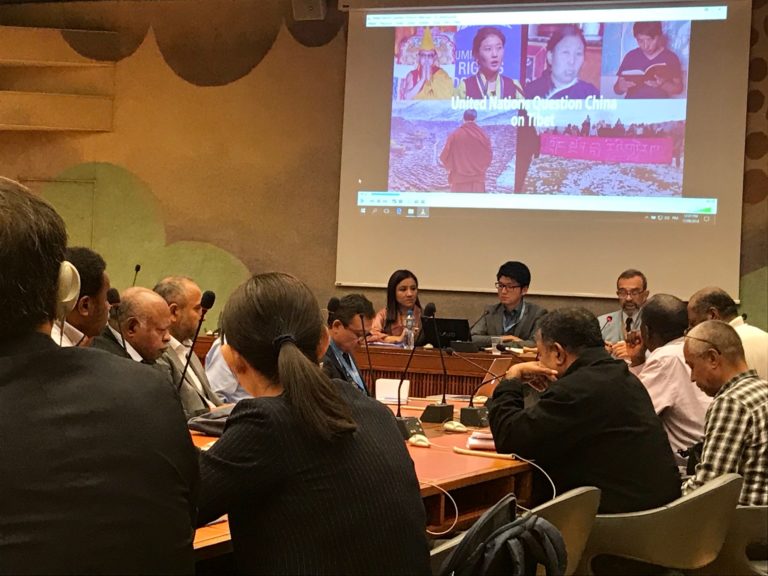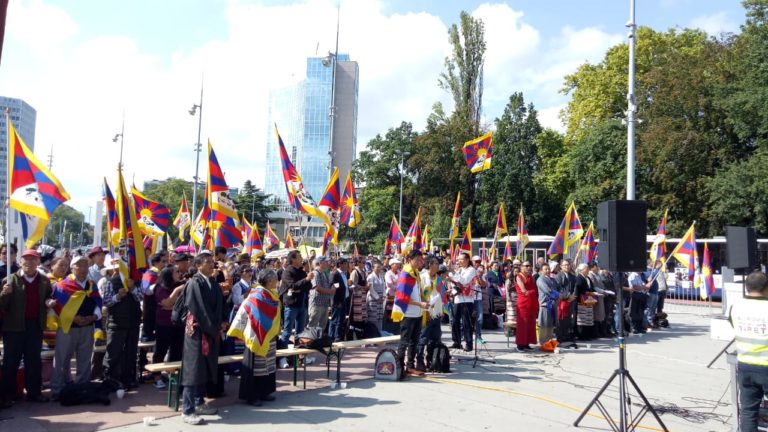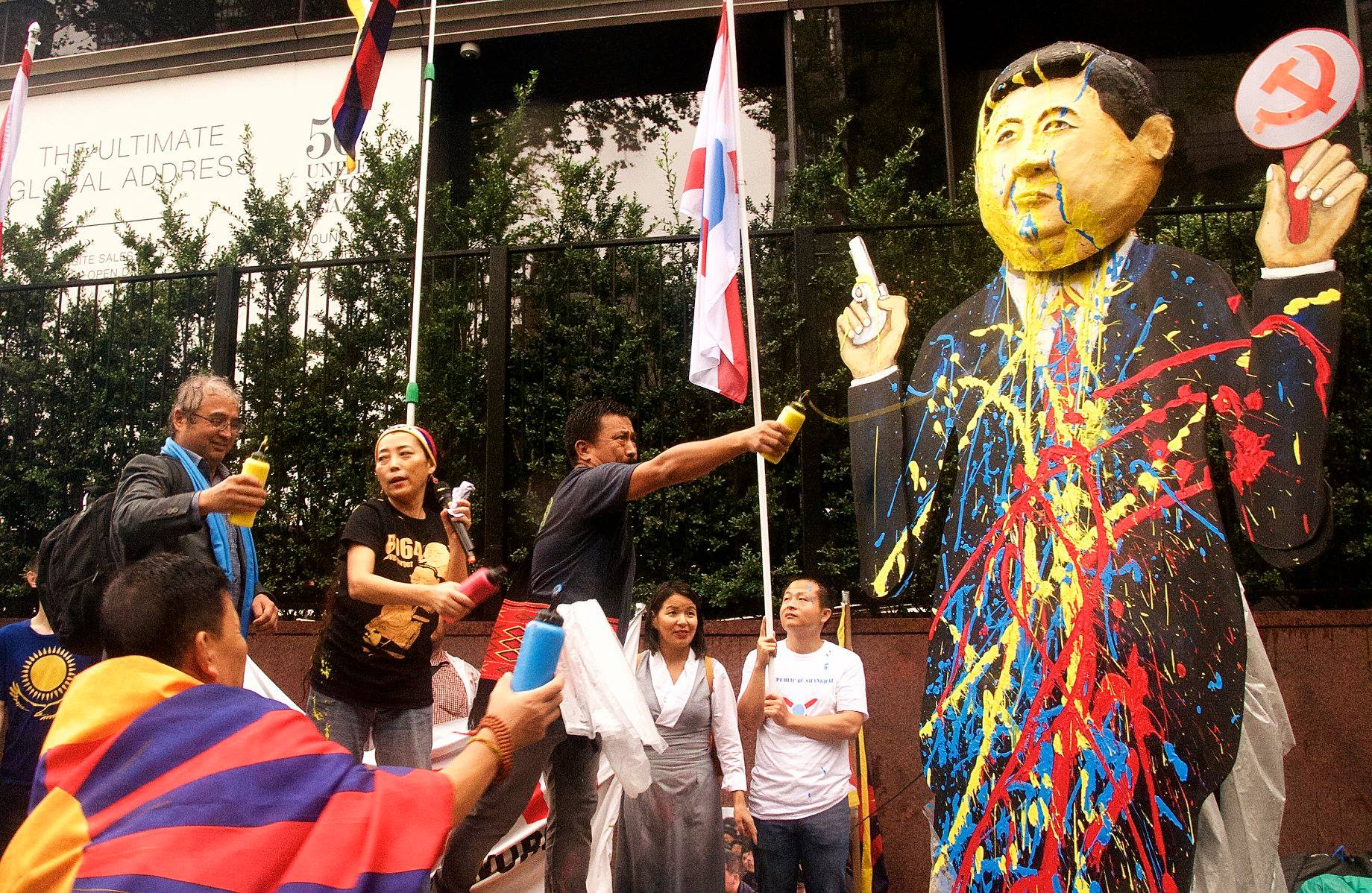
Photo: tibet.net
Tibet was in the spotlight at three separate United Nations events this month. Tibetan activists staged protests outside the United Nations in Geneva on September 15 and in New York on September 18 to draw attention to the deteriorating human rights situation in Tibet. The protest in Geneva took place to coincide with the 39th United Nations Human Rights Council session taking place there, while in New York the protest coincided with the 73rd UN General Assembly and was targeted at Chinese President Xi Jinping.
In addition, in Geneva on September 17, the human rights situation in Tibet was a major topic of discussion at a side event to the Human Rights Council, organised by the Society for Threatened Peoples, Human Rights in China-Seeking Solutions: The Case of Tibet Autonomous Region and the areas where Tibetan live. The Society for Threatened Peoples aims to protect threatened minority groups under oppressive regimes. Dhardon Sharling, Secretary for Information at the Tibetan Government-in-Exile’s Department of Information and International Relations was a speaker at the event, as was Taisuke Komatsu from the International Movement Against All Forms of Discrimination. Adrien-Claude Zoller, President of Geneva for Human Rights, moderated the session.

Tibetans call International Community’s Message of Hope and Solidarity for Tibet at the UN
Photo: tibet.net
At the Geneva demonstration, the protestors presented a letter to newly-elected UN High Commissioner Ms Michelle Bachelet,copied to the UN Office of the High Commissioner for Human Rights, asking the international community to demand from China: the release of all political prisoners;repeal repressive policies and discriminatory practices in Tibet; resume dialogue with His Holiness the Dalai Lama’s representatives; facilitate visits to Tibet for the UN High Commissioner and Special Rapporteurs and to allow international media unhindered access to Tibet.
The peaceful protest was organised by the Switzerland and Liechtenstein Tibetan community, with more than 100 Tibetans and supporters taking part. Their message emphasised the importance of international support to find a peaceful resolution with the Chinese government, and asked for a “message of hope and standing in solidarity with Tibet” from the international community.

Activists throwing ink at an effigy of Xi Jinping in front of the UN HQ in New York
Photo: Phayul
In New York, activists from occupied nations including East Turkestan (Xinjiang), Southern Mongolia, Hong Kong and Taiwan joined Tibetans and pro-democracy groups, including the Unrepresented Nations and Peoples Organisation, to call for the end to repressive policies implemented by China and freedom for their countries. They insulted Chinese President Xi Jinping by calling him “Xi-the Pooh” after the cartoon character Winnie the Pooh – who is incidentally banned in China, and “Xitler” – likening him to the Nazi dictator Adolf Hilter. Ink was thrown at an effigy of Xi – showing solidarity with Dong Yaoqiong, a Chinese woman who did the same in Shanghai in July. She is reported as having been arrested and detained in a mental institution.




 Print
Print Email
Email